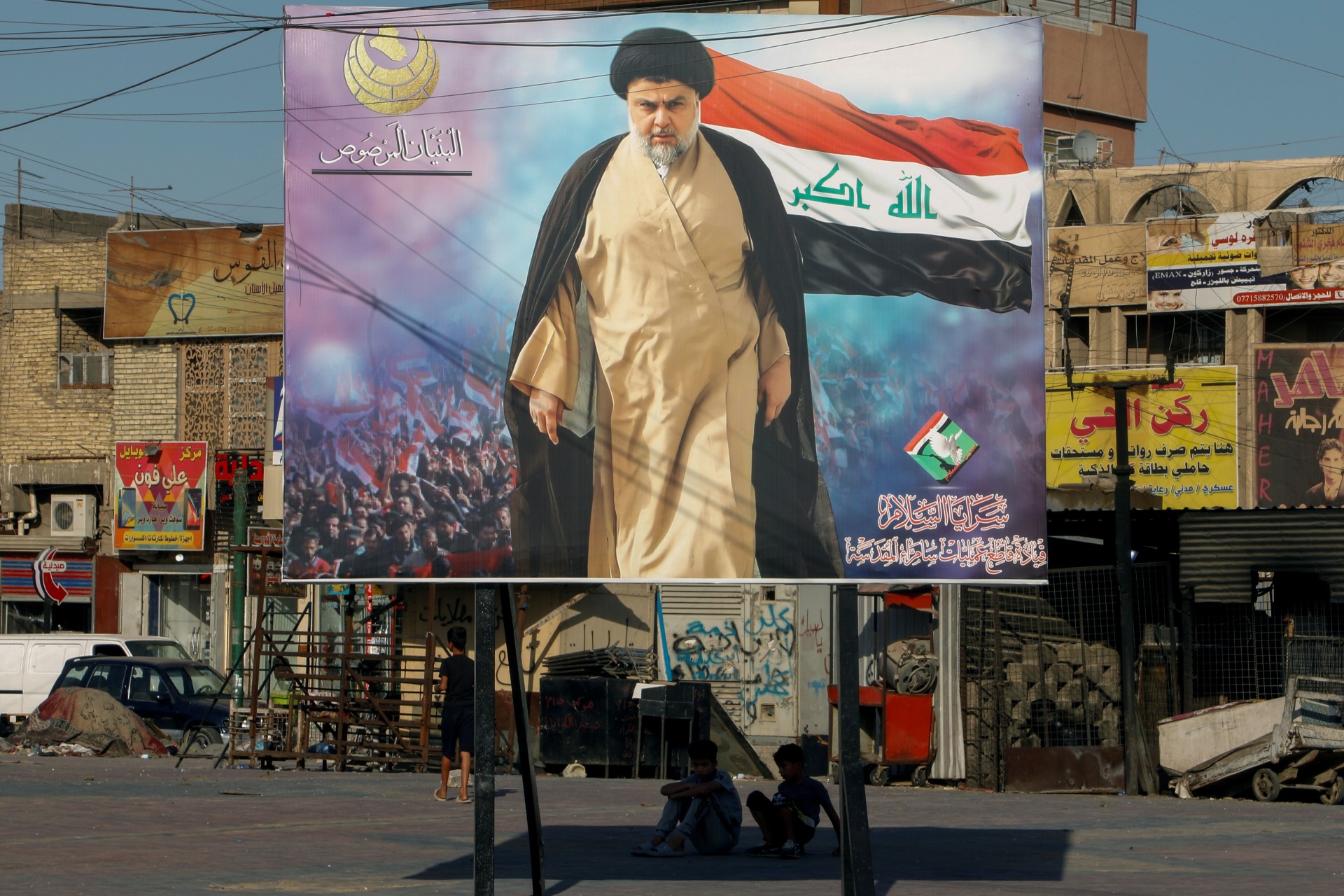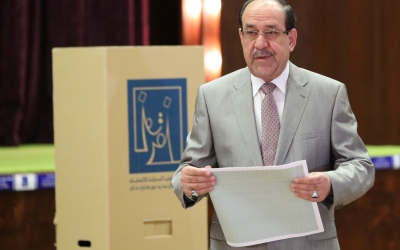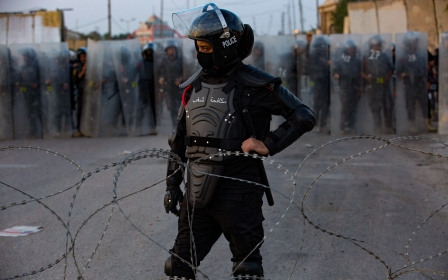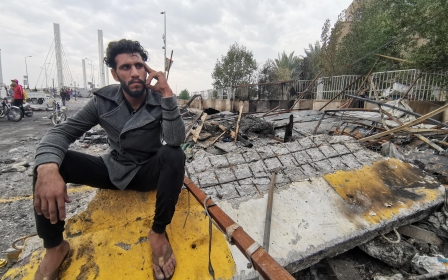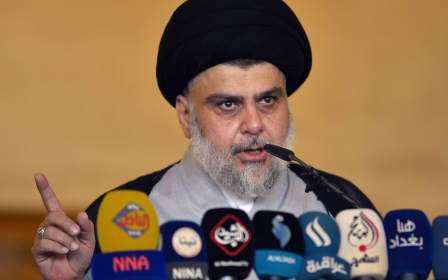Iraq elections: Sadr's boycott raises fears of political and security chaos
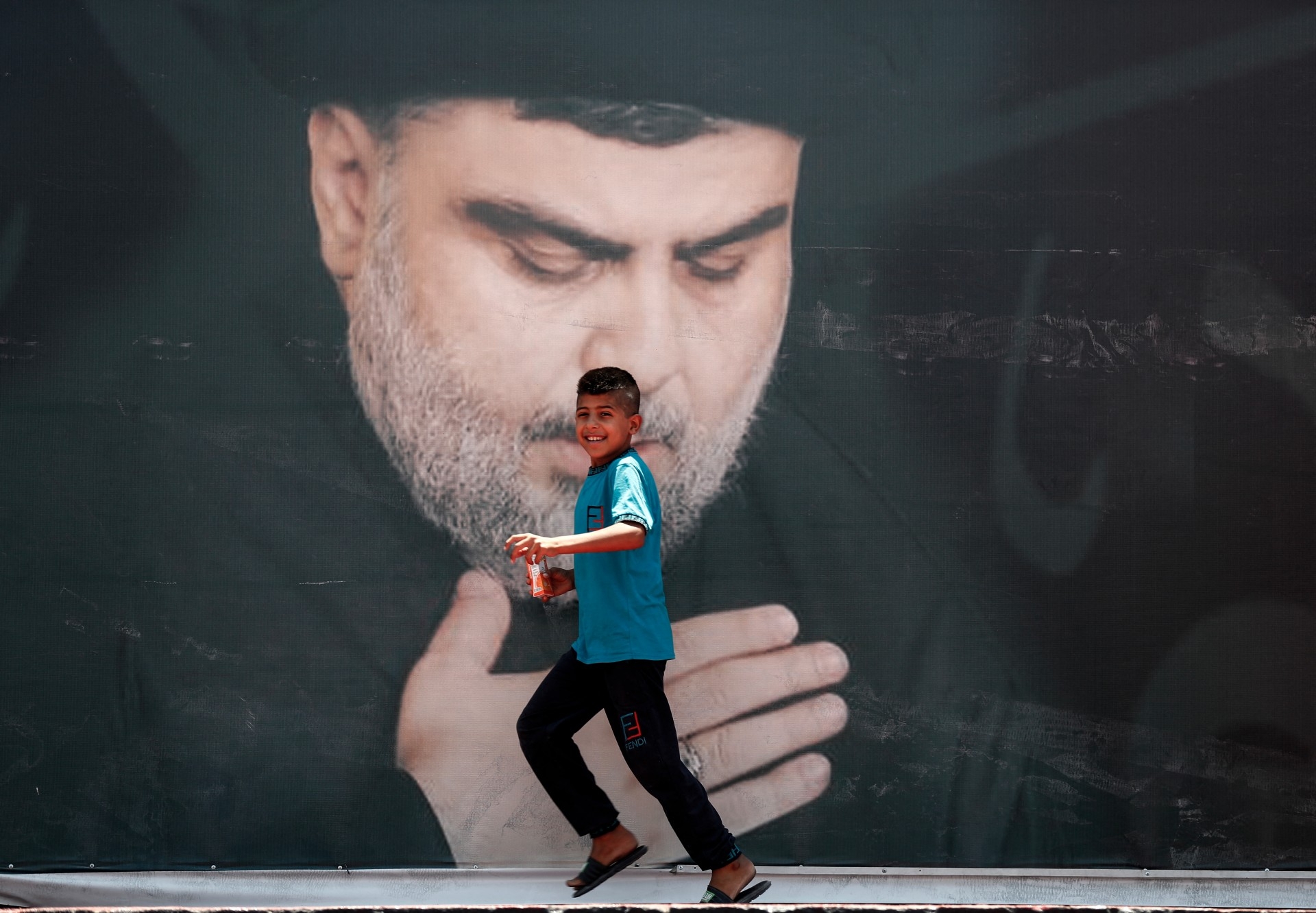
When Muqtada al-Sadr last month announced his movement would not be participating in Iraq’s upcoming October elections, many of his rivals saw an opportunity. But others are far warier about the effects the Sairoon Alliance’s withdrawal will have.
For Prime Minister Mustafa al-Kadhimi and other political forces, Sadr’s decision raises questions about Iraq’s ability to hold the elections at all, officials, politicians, and analysts told Middle East Eye (MEE).
There are serious concerns that the security situation will be destabilised in the coming weeks and the political vacuum left by Sadr could cause chaos, they said.
Sadr cited the need "to save the homeland that the corrupt have burnt and are still burning" when he announced his candidates' withdrawal on TV on 15 July. His politicians are yet to formally cancel their candidacy, but they’ve all ceased campaigning and declared they will obey Sadr’s decision.
'Technically, we are more prepared to hold elections than ever before, but politically, there is confusion'
- Senior politician close to Kadhimi
The Shia cleric has a loyal following of around five million supporters - many of whom are now expected not to vote.
New MEE newsletter: Jerusalem Dispatch
Sign up to get the latest insights and analysis on Israel-Palestine, alongside Turkey Unpacked and other MEE newsletters
He also controls one of the largest paramilitaries and about half of the senior and middle-ranking government positions.
The boycott of his supporters and allies would immediately allow questions to be asked about the elections’ integrity, particularly as it is likely to depress the vote significantly.
Were the polls to go ahead, his supporters may see them as a challenge to Sadr himself, which officials worry could spark violence and demonstrations in Baghdad and the southern provinces.
"Technically, we are more prepared to hold elections than ever before, but politically, there is confusion," a senior Iraqi official close to Kadhimi told MEE, speaking on condition of anonymity.
“If we hold the elections on its current date [10 October], they will be successful from a technical point of view, but it will be disastrous from a political point of view due to the absence of major forces,” he added.
"The Sadrists are one of the major political forces that cannot be ignored or proceeded without. At least to protect the outcomes of the electoral process and ensure the stability of the upcoming parliament and government and their representation for all."
'Dirty war'
Sadr’s announcement came just two days after a devastating fire ripped through Al-Hussein Teaching Hospital in Nasiriyah, a catastrophe that killed at least 64 people and wounded scores of others.
The blaze was preceded by the bombing of dozens of power transmission towers, which led to a near-total electricity outage in several governorates for several days, as summer temperatures rose to nearly 50 degrees Celsius.
Both the health and electricity ministries are controlled by Sadrists, and those disasters sparked a torrent of criticism on TV stations and social media accounts owned by Sadr’s rivals, which blamed his movement for the incidents, saying they were caused by corruption, disregard for people’s lives and a total lack of accountability.
Sadr’s sudden rejection of the election was quickly perceived as a response to this ferocious criticism – a “dirty war waged by his rivals on the people to embarrass him and his followers” as a prominent Sadrist leader put it.
"Sadr decided to withdraw from the elections to stop the bloodshed,” the Sadrist told MEE.
"The [media] attack on us was unprecedented, and the electoral struggle has become bloody and dirty. They [Sadr's rivals] were targeting innocents to bring us down politically,” he alleged.
“We decided to withdraw in order to stop this bleeding and to expose their nakedness and to prove to the people that we have no control over what is going on.”
Filling the void
Assuming the elections go ahead, all of Sadr’s Shia opponents will be boosted by his candidates’ absence.
They expect to pick up more seats, especially in Shia-dominated areas such as Baghdad and Iraq’s centre and south.
The State of Law coalition led by former prime minister Nouri al-Maliki, Sadr's arch-foe, and the candidates of the Iranian-backed armed factions, the cleric’s traditional rivals, would be the biggest beneficiaries of his boycott of the elections.
Now, they are planning to take advantage of the situation and campaign in Sadr areas that they would never have previously dared, politicians and observers told MEE.
“Maliki and the loyalists [Iranian-backed parties] are the biggest beneficiaries of our withdrawal. They are currently seeking to hold elections without us,” the Sadrist leader said.
"But they will not succeed. Otherwise, they will have to face what will happen. There are no elections without the Sadrists, no parliament, no government. The street will not calm down and Kadhimi will not dare to hold elections without our participation.”
Sadrist candidates who are resentful they cannot now run for parliament but wary of speaking out against their leader have instead begun promoting the idea that the elections should be postponed until April, to ensure their participation.
The cleric’s rivals, meanwhile, insist on holding the polls on time, arguing that Sadr isn’t seriously boycotting the elections and he is likely to reverse the decision at any moment.
In 2014, the cleric played the same trick ahead of that year's elections, only to row back on his decision two months later.
Besides, Sadr’s rivals argue, there is overwhelming popular enthusiasm for the October elections, and all the legal framework to hold the polls has already been put in place.
"Sadr's retreat from his decision to boycott the elections will not be strange or new, as he has already done it several times over the past years," a State of Law leader said.
"His candidates have not submitted formal requests to the Electoral Commission to withdraw their candidacy. If [Sadr] was serious about his decision, he would ask them to formally withdraw.”
Over the past year, Sadr and his followers have promoted the idea that the next election will see his movement snatch 100 of the 329 seats in parliament and even see one of them become prime minister.
If they don’t, they argued, the elections will have been rigged.
The State of Law leader believes this fear will not materialise but it has put Sadr off running altogether.
“Whether he regrets his decision or not, he lost the bet and has proven that he and his followers are incapable of winning half the number of seats they promised,” he said.
Sadr’s rivals were provoked by his assertions that a Sadrist was set to become prime minister. So when disasters struck sectors under Sadrist control, his opponents quickly linked them to Sadrists’ corruption and negligence.
'Sadr and his political movement have been controlling around a half of the government and other authorities. They will not simply give up all of this'
- Prominent Shia politician
When he withdrew, Sadr’s opponents then said he was only bowing out because his candidates were projected to win just 32-34 seats in parliament, far fewer than the number he predicted himself.
His decision to boycott the elections was seen as “a tactic to evade his promises and save face”, a prominent leader of the al-Hikma Movement told MEE.
Privately, Sadrist leaders do not hide that they are betting on chaos and violence, which they believe will hit the streets before election day and force the government and Sadr's opponents to postpone the elections.
"Whatever the upcoming election results, it will lead to a redistribution of powers, positions, influence, and money among the winners,” a prominent Shia politician told MEE.
“Sadr and his political movement have been controlling around half of the government and other authorities. They will not simply give up all of this, even if this is Sadr's desire. Those [Sadrist leaders] have commitments, contracts, commissions, and mass bases that are waiting for them to continue to keep the spoon in their mouths,” he added.
“Preventing them from participating in the elections and threatening all these privileges will provoke their wrath against Sadr himself, and they will translate this into pressure on everyone, including Sadr.”
Postponement is not an option
Yet, as things stand, such a delay is far from an option for Iraq’s government and the international community.
Primarily this is because of the time and money spent preparing for them and getting the electoral law into place, officials told MEE.
"The early elections cannot be postponed now. Postponement means that all technical steps will be repeated anew. Perhaps we will even witness demands to amend or cancel the election law," an official close to Kadhimi told MEE.
"These procedures may take a year or more. This means that the option to postpone the elections is closer to the idea of canceling, and this is what the prime minister does not want.”
According to the official, Kadhimi, who is not running in the next election, wants all the main forces to participate and ensure a smooth transfer of power. Sadr’s absence threatens this, he warned.
“The prime minister is very concerned and is currently seeking to find a settlement with the participation of the [political] forces that support him, to reassure Sadr and reduce the severity of the attacks on him and his followers, and convince him to retract his decision,” he said.
"Everyone knows that the Sadrists will not withdraw from the political scene quietly and will not allow elections to take place without them. Sadr's followers will burn the streets if necessary, and everyone must understand that there is no real profit to be gotten from the Sadrists boycotting the elections, and there will be no stability, therefore action must be taken on this basis."
Middle East Eye delivers independent and unrivalled coverage and analysis of the Middle East, North Africa and beyond. To learn more about republishing this content and the associated fees, please fill out this form. More about MEE can be found here.


